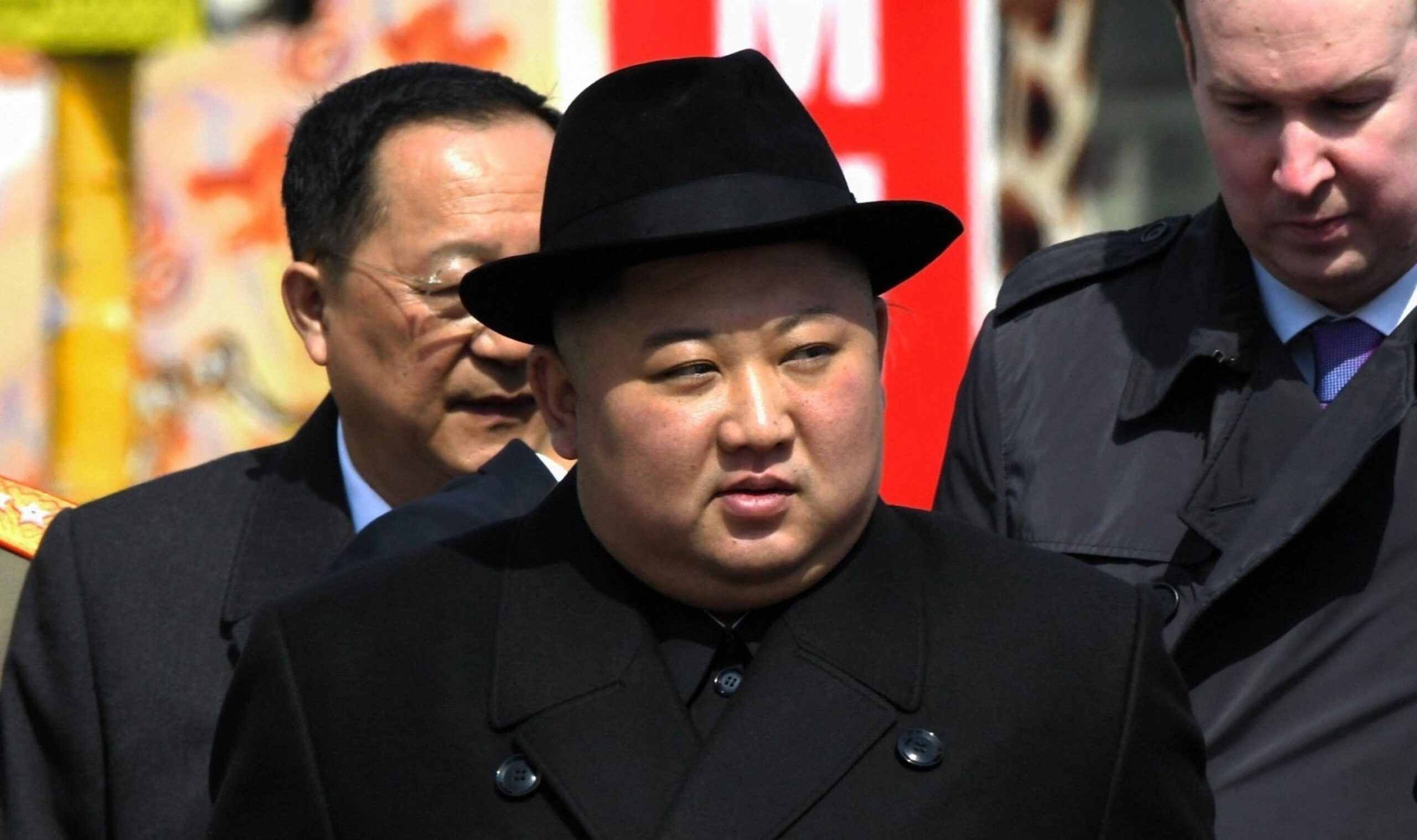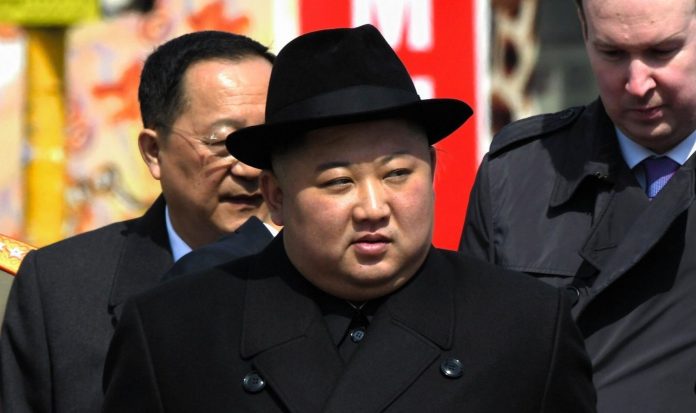
By any measure, Northeast Asia is becoming more dangerous. North Korea is expanding its nuclear arsenal and improving its missile force. The People’s Republic of China is doing little to enforce sanctions against the North and might encourage war on the Korean peninsula if Beijing and Washington come to blows over Taiwan.
Russia has revived its relationship with the Democratic People’s Republic of Korea, making the latter all but impervious to sanctions. Moscow also might surreptitiously aid the latter’s nuclear and missile programs in return for artillery shells and more for the war in Ukraine.
Finally, no one is talking on the peninsula. In theory that’s Pyongyang’s fault, since it has refused to engage. On other hand, the U.S., as well as the conservative Yoon government in Seoul, won’t discuss what the North desires to discuss. Hence deadlock.
The Obama administration was noted for its policy of “strategic patience,” which essentially meant kicking the can down the road while hoping that nothing too bad happened. North Korean provocations risked war in 2010, but Seoul eschewed military retaliation. President Donald Trump threatened “fire and fury” in response to the North’s missile tests, before turning toward summitry. After his second meeting with Kim Jong Un collapsed in Hanoi in February 2019, Pyongyang steadily reduced its contact with Washington and Seoul, most dramatically destroying the inter-Korean liaison office built by the South in Kaesong.
President Joe Biden, who views himself as an old hand at diplomacy, entered office apparently determined to do nothing. To be sure, he offered to talk but gave no indication that there was much to negotiate other than denuclearization, which Kim ostentatiously rejected. The latter surely surprised no one. Few Korea analysts believe that the DPRK would yield weapons that cost so much to develop and provide the one sure deterrent to U.S. military action against Pyongyang. Alas, North Korea’s response to the Republic of Korea has been even tougher, returning only obloquy to President Yoon Suk Yeol’s overtures. With Seoul playing a secondary role to Washington, Kim evidently sees little gain from engaging Yoon.
It is one thing to be skeptical of Trump’s diplomatic style. It is quite another to reject his search for a new path forward. At the end of the Obama administration U.S.–DPRK relations were at a dead end. Trump’s first year looked extraordinarily dangerous, with Secretary of Defense James Mattis later relating that he slept in his clothes to be ready for late-night North Korean action.
In this world Trump agreed to a summit with Kim. By and large Washington’s Korean policy community was horrified. Even though virtually no policymaker believed that Kim would negotiate away his nuclear program, most opposed seeking arms control agreements short of denuclearization. Despite their consistent past failure they insisted that the U.S. government continue to follow their strategy. Trump’s decision to meet the North Korean leader caused a neuralgic reaction among many analysts.
This was evidently the view for the incoming Biden administration. For instance, at the November 20, 2019 Democratic presidential debate candidate Biden responded to a question on North Korea: “Well, first of all, I’d go back in making sure we had the alliances we had before since he became president. He has absolutely ostracized us from South Korea. He has given North Korea everything they wanted, creating the legitimacy by having a meeting with Kim Jong Un, who’s a thug—although he points out that I’m a rabid dog who needs to be beaten with a stick, very recently was his comment.”
This comment was inaccurate on all counts. Biden reiterated his policy which amounted to allies first, irrespective of American interests. He wrongly suggested that the U.S. and ROK were alienated: South Koreans generally didn’t like Trump, but the relationship continued. Kim was a thug, but Trump rejected his demands, which caused the rupture. Moreover, Biden quickly warmed up to a similarly brutal tyrant, Mohammed bin Salman. And viewing even a meeting as a concession betrayed the hubris that continues to undermine US foreign policy. In fact, it is more important to talk to one’s adversaries than one’s friends.
Candidate Kamala Harris has done no better. She declared,
There are no concessions to be made. They—[Trump] has traded a photo-op for nothing. He has abandoned the—by shutting down the operations with South Korea for the last year-and-a-half, so those operations, which should be— and those exercises, which should be active, because they are in our best national security, the relationship that we have with Japan, he has in every way compromised our ability to have any influence on slowing down or at least having a check and balance on North Korea’s nuclear program.
Her comment was, if anything, even less well-grounded than Biden’s. In return for the halt in military exercises, Kim suspended nuclear and long-range missile tests. He abandoned that pledge only in December 2019, after the failure of the Hanoi summit and breakdown in the bilateral relationship. That was more than the Obama administration gained in eight years. Under Trump both Washington’s relations with Tokyo and his relations with Prime Minister Shinzo Abe were quite robust. Finally, U.S. policy prior to Trump’s election had failed to noticeably slow the North’s nuclear and missile programs, which accelerated after Kim succeeded his father in December 2011. Five years later, Mark Fitzpatrick of the International Institute for Strategic Studies wrote, “North Korea is the biggest blemish on President Barack Obama’s nonproliferation record. Pyongyang’s four nuclear tests and more than 50 missile and rocket launches during the past eight years have given it a capacity to rain nuclear warheads on its regional adversaries and a good start to be able soon to reach the U.S. homeland.”
Alas, the Democratic Party has learned nothing. The 2024 party platform spouted innocuous boilerplate about Biden and demagogic tales about Trump:
Subscribe Today
Get daily emails in your inbox
Biden’s leadership, the United States hosted a historic trilateral Camp David Summit with Japan and South Korea, enshrined the Washington Declaration with South Korea, and extended trilateral deterrence discussions with Japan. … President Biden has also worked alongside our allies to counter the threat posed by North Korea’s destabilizing development of nuclear and missile programs, in violation of multiple UN Security Council resolutions. By bolstering our trilateral cooperation with South Korea and Japan, we are maintaining peace and stability in the Korean Peninsula and beyond. Trump took a different approach in the region, embarrassing the United States on the world stage including by flattering and legitimizing Kim Jong Un, exchanging ‘love letters’ with the North Korean dictator. Trump directly threatened our valued ally South Korea with the withdrawal of U.S. troops stationed there over a trade dispute. President Biden has and will stand by our allies, especially South Korea, against North Korea’s provocations, including its illegal build-up of missile capabilities.
The Washington Declaration was a desperate attempt to convince South Koreans that future U.S. presidents would defend Seoul from North Korean attack despite the risk of nuclear incineration of American cities. Unsurprisingly, many South Koreans are not convinced that is so, and the debate is growing over the possibility of creating a South Korean nuclear deterrent. Trump promoted the U.S.-ROK-Japan relationship. Although he failed to win an agreement with Kim on nuclear arms, the latter offered to close Yongbyon. Biden achieved nothing involving the DPRK. Trump suggested withdrawing U.S. troops because he believed the South was unnecessarily dependent on Washington for its defense, a sensible observation given the ROK’s vast economic, technological, and diplomatic edge over the North. Unfortunately, to “stand by our allies” just means to prepare for war, which Trump did as well as Biden.
In short, the Democratic Party appears beholden to a failed status quo. It can argue that Trump performed no better. But at least he recognized the necessity of negotiating, and therefore tried a new approach. For that he deserves praise. Indeed, the imperative for negotiation and a serious attempt to freeze or at least slow the North Korean nuclear program grows ever more urgent. An agreement might remain out of reach, but a few more “love letters” and an occasional summit would be a small price to pay for lowering tensions on the Korean peninsula even a little. On this score, at least, Biden and Harris deserve an “F.” Although the North pointedly rejected Trump’s claim that Kim missed him, the former president could hardly do worse than his successor. And his record suggests that he might do better.


